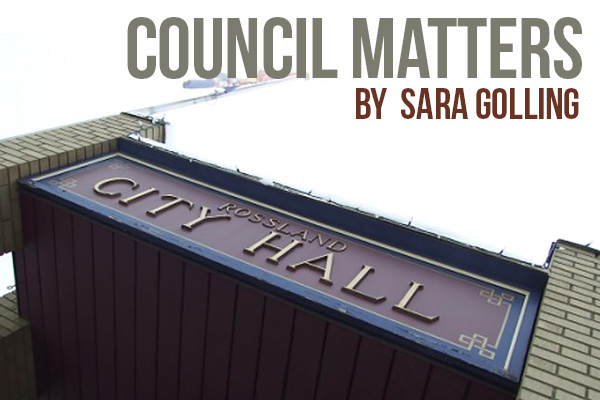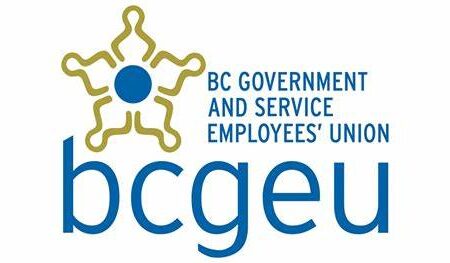Council priorities; taxes and accommodators; FIS races need volunteers; MRI wait times
REGULAR MEETING OF ROSSLAND CITY COUNCIL, MONDAY, MARCH 6, 2017
Present: Mayor Kathy Moore, and Councillors Lloyd McLellan, Andy Morel, Marten Kruysse, Andrew Zwicker and John Greene. Absent: Aaron Cosbey.
Staff: CAO Bryan Teasdale, CFO Elma Hamming and Executive Assistant Alison Worsfold.
There were no members of the public in the gallery, and no scheduled delegations.
Council began withUnfinished business: Subcommittee on Council’s Strategic Goals.
The subcommittee recommended deleting some items that had been completed, or were no longer urgent because good progress has been made. Those items were:
· Resolve internal communication issues;
· Improve human resource issues including staffing, training, team building, leadership and morale (including five sub-headings).
McLellan, speaking for the subcommittee, explained that the internal communications item is “no longer a hot issue, and is more appropriately the CAO’s responsibility.” He went on to suggest that the human resource issues are being handled well at this point, and are also the CAO’s responsibility, but noted that Council should budget to “increase investment in staff training and professional development, to enable continuous improvement,” and that should be added to Council’s strategic plan.
Council agreed with these suggestions; but Moore asked whether they should delete items, or instead note that they are now satisfied with progress on those items; that’s what she would prefer, so that the record shows what Council and staff have accomplished. Kruysse agreed, and suggested that Council put out a revised strategic plan in the fall. McLellan urged a brief, accessible document rather than one with excessive detail, and other councillors agreed.
Council also agreed with the subcommittee’s suggestion that “Reduce Rossland’s vulnerability to climate change impacts” should be added to Council’s strategic plan. McLellan noted that the topic requires more emphasis.
The original plan had included the item “Invest in a preâ€feasibility analysis of a wastewater treatment plant that is a significantly less expensive long†term option to upgrading the regional treatment facility.” The subcommittee’s report noted that “Some members of the subâ€committee asked whether this was still relevant, given that Rossland and partners have submitted a grant proposal for the preparation of stage 3 plans for a conventional plant.”
Moore agreed that the original item, as phrased, is not now relevant, given Rossland’s commitment to the new sewage treatment facility in Trail; Kruysse suggested that it should not be included unless we are directing staff to put time and resources into it. Zwicker felt that the idea had been dismissed out-of-hand at the beginning, without adequate consideration or investigation. “There were some real road-blocks,” McLellan commented.
Council agreed that Rossland should continue to urge, at the regional level, the inclusion of capacity to move to tertiary treatment of sewage before it goes into the Columbia River.
“Moving on to another very fun topic: regional recreation,” announced Moore. The item is listed in Council’s strategic plan as: “Implement affordable access to regional recreation amenities.”
The subcommittee’s minutes note that “Council rates the priority of this item as medium. Some members of the subâ€committee argued that it should be higher, and wondered whether we might revisit that rating.”
Kruysse argued that this was a commitment Council made early in its term, and “we need to apply some staff resources to moving this along.” Moore noted that things haven’t changed, and “you know the definition of insanity.”
Kruysse disagreed, saying that “we haven’t had that conversation with Trail yet” after Trail entered into an agreement with Fruitvale, and Kruysse stated that if it were worked out on a per-capita basis for Rossland, a similar arrangement would be more favourable than previous offers from Trail. “I think, at some point this year, we’ve got to have that conversation.”
McLellan suggested deleting “regional” and then it would apply to both local and regional; he noted that “we have to address the challenges we have with recreation throughout our community as well.”
Morel felt that Rossland “has made the effort” to agree with Trail on recreation, and doesn’t think it should be “a priority for City staff to go out and start those conversations again.”
Council decided to leave the item as is for now, and take another look at it in the fall.
Public Works Report:
Council commented on the unusual number (18) of frozen water lines dealt with during the past month. Greene said that snow removal has not been done downtown for some time now, and that large heaps of snow are occupying parking spaces.
McLellan and Kruysse spoke about the relationship, if any, between seasonal increases in the number of visitors to Rossland, and the measured volume of sewage flows: McLellan noted that “inflow and infiltration” (I&I) of non-sewage water into sewer lines is a much greater factor in our measured sewage flows than the number of people in town at any given time; he said that our lowest measured flows happen when the ground is frozen, inhibiting I&I.
Design Review Panel: On the topic of a review of the DRP guidelines, to address some gaps in the guidelines and accomplish greater consistency in application, Moore noted that Council wanted a “modest” review, not necessarily a major effort that would require an outside consultant, and she was not willing to agree with hiring a consultant as suggested in the DRP minutes. Greene said there is an upcoming meeting of the DRP, when its members will bring their thoughts.
A letter about small short-term rentals and PST:
Red Mountain Resort has written a letter to the BC Minister of Finance, asking that the province rescind a regulation that exempts short-term rental accommodation of under four units from collection provincial sales tax on the rental of their units. RMR stated that this exemption “creates an unfair playing field between competing businesses.” It also pointed out that a “small property [rental] may not only price itself less than other accommodators, but also receive the direct benefit of the destination marketing from which it is exempt from contributing.” The RMR letter stated that “employee housing in many BC destinations is at such a critical level that it is restricting business operations. The growth of short-term rental through online channels has reduced the number of beds available for monthly rental as inventory moves to short-term rental channels to take advantage of favourable, albeit inequitable, regulation,” and mentioned that this season, about 60 of RMR’s seasonal employees “had major challenges finding housing in Rossland.”
McLellan said he wanted to support the letter and made a motion to that effect. Moore said that she had spoken to other resort municipality mayors, and said “most of them are in support” of rescinding the regulation. Moore reported that Josie Osborne, mayor of Tofino, had raised the issue of how many small accommodators — if included in the sales-tax-paying cohort — could potentially drive “how tourism is managed in that community.” Moore pointed out one example of how that could affect the amount of RMI funds received by Rossland.
Zwicker said he does not support the letter, because he thinks some of it was opinion rather than fact. He said many of the Airbnb rentals the subcommittee on short-term rentals spoke with were not interested in offering longer-term rentals at all; it was Airbnb or nothing, so those would not increase the availability of accommodation for RMR employees. Zwicker disagreed with RMR’s point on leveling the playing field: “How can a little old person with two bedrooms compete against a 200-plus room hotel?” He suggested that the regulation may have been put in place initially to help level the playing field. He acknowledged that the large hotels are a vital part of the town, but also suggested that more of the money the smaller accommodators earn stays in town to contribute to the local economy, and that the small accommodators serve to distribute earnings more broadly.
Moore noted that Rossland would not be supporting the letter, but writing its own letter.
Greene disagreed with Zwicker about the relative contributions to the local economy; “We need both,” he stated, and everyone agreed with that.
Kruysse made the distinction between the sales tax issue, which is a provincial matter, and the local issues that arise from rentals, such as parking problems and contributions to Tourism Rossland.
Moore asked if Council should hold off on writing a letter until it has received its recommendations on short-term accommodation and come to its own conclusions. She called the question on the motion to write a letter supporting RMR’s request: the motion FAILED, with Greene, Kruysse and McLellan in favour, and Zwicker, Moore and Morel opposed. “But I don’t think it’s a dead issue,” Moore commented.
Members’ Reports:
McLellan led off by reporting on his Regional District of Kootenay Boundary (RDKB) meetings, which move around the district. At a meeting at Mt. Baldy on February 21, the board approved a request from School District 20 for a $20,000 grant for a playground at Fruitvale Elementary School from the gas tax fund. Moore asked whether there was any discussion of the regional district “taking on a school district function.” Teasdale explained that the terms of the gas tax fund provide for a “third-party non-profit group or society” or other such entity can apply for gas tax money.
On February 22, McLellan attended a Hospital Board meeting in Moore’s stead, as she was out of town. Among the material reviewed was the MRI information. He noted that our local area has only a mobile MRI unit, and that the hospitals in Vernon, Penticton, and Kelowna all have permanent MRI units, and Cranbrook is scheduled to have one next year. The average wait times for emergency MRIs here are 16 weeks, and for non-emergencies, 51 weeks. McLellan reported anumber of requests were considered at the meeting, but only one decision was made — that decision was to reject a request from Columbia View Lodge for a new bus for the residents.
McLellan expressed disappointment that the Hospital Board meeting, costing tax-paying citizens so much — about $2,700 just in directors’ stipends, he noted — accomplished so little decision-making. (Readers who are curious can see the agenda for that meeting by clicking this link.)
Kruysse asked about the contaminated site designation mentioned at the previous Council meeting; McLellan reported that it doesn’t reach Rossland.
Zwicker reported that the Sustainability Commission’s Builder’s Workshop is attracting good attendance.
Greene issued a plea for volunteers for the FIS Cup races being held at Red Mountain this week; “They’re really short of help.”
Moore reported on the Francophone flag-raising ceremony with L’école des Sept-Sommets that morning at City Hall. She then reminded Council that on April 4, they will be deciding which applicants get how much of the Community Grants funding. “How do we want to do it?” she asked. She noted that these grants offer a very rare opportunity for groups to obtain operational funding, as most grants specifically exclude that. Some ideas were discussed, but the usual system will continue. Kruysse joked, “We should just let you do it, then you’d wear it.” Moore responded that she generally “wears it” anyway.
The meeting recessed to an in camera session pursuant section 90(1)(a) of the Community Charter: discussion of personal information about an identifiable individual who holds or is being considered for a position as an officer, employee or agent of the Municipality.
And your reporter packed up and walked home on icy streets (so glad to have those urban crampons) in a pleasant snowfall, contemplating the blobs of colder-than-usual air over our area, and over most of Europe and northern Africa — represented by pale-blue areas on the NASA colour-coded map here— along with the record-breaking warm temperatures, shown as dark red, over most of the rest of the planet. 2017 had the third warmest January (global average that is, not in our neighbourhood!) on record, it says. And 2016 was the warmest year on record for Planet Earth as a whole.

























